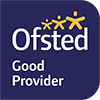English
English is taught discretely in English lessons, guided reading, phonics/spelling and GPS (KS2 only) lessons. Skills in English are further developed across the curriculum. It is a subject in its own right and the medium for teaching; for pupils, understanding language provides access to the whole curriculum. Through being taught to write and speak fluently, pupils learn to communicate their ideas and emotions to others; through their reading and listening, others can communicate with them. Through reading in particular, pupils have a chance to develop culturally, emotionally, spiritually and socially. All children are taught the skills required to be competent speakers, listeners, readers and writers.
Out strong belief is that throughout school pupils should have access to a wide range of high-quality texts in order to develop a love of reading. We believe that accessing these texts, covering fiction, non-fiction and poetry, enables pupils to increase their knowledge and understanding, develop a rich vocabulary and creates an awareness of authors and texts.
The English writing curriculum is completely text-based with genres, grammar and punctuation taught using quality, well-chosen books as a stimulus. Venn Multi-Academy Trust have produced a Literature spine of books that all pupils in Venn will enjoy from EYFS up to Year 6, and as a school we have enhanced this list with further texts pupils will engage with throughout school.
Below are some documents you may find useful:

“The school is calm and orderly. Pupils walk around school sensibly and are courteous to one another.”

“Pupils enjoy attending school.”

“The early years environment is inviting and well organised.”

“Adults help pupils who fall behind.”

“Teachers who are new to the school welcome the support they receive.”

“Staff work closely with professionals from external agencies to provide support for pupils with SEND.”

“There are respectful relationships between adults and pupils.”

“The ‘Mountbatten 50’ challenges pupils to complete a range of interesting activities
before they leave the school.”

“There is a strong team culture within the school.”

“Pupils say that behaviour is good.”

“Leaders work well
with members of the multi-academy trust to support staff.”

“Pupils learn how to keep safe when using the internet.”

“Pupils recommend the school to their friends.”

“The school enjoyed recent success when the computing club won a local area competition using their coding skills.”

“There are a wide range of school clubs.”

“There is a clear focus on the teaching of early mathematics and reading.”

“Leaders have considered what pupils might need to know to broaden their understanding of the world around them.”

“Curriculum plans are well sequenced.”

“Pupils say they feel safe in school.”

“The residential visit to Robinwood encourages pupils to experience new challenges and work collaboratively with their friends.”

“Teachers appreciate the support they receive from subject leaders to help them improve their teaching.”

“Pupils access a range of visits and activities beyond their own experiences.”

“Senior leaders, alongside the multi-academy trust, have provided subject leaders with training.”

“Staff are well trained in teaching children to read.”

“Teachers check what pupils have learned and remembered each term.”

“Children settle into school quickly.”

“Pupils listen carefully to what adults say. They join in class discussions enthusiastically.”

“Staff encourage
pupils to be independent from an early age.”

“Pupils enjoy learning about a wide range of subjects.”

“Leaders and teachers make regular checks to see how well pupils with special educational needs and/or disabilities (SEND) are doing.”

“Subject leaders are knowledgeable about their subjects.”

“Staff welcome the highquality training they receive. They feel proud to work in the school.”

“Pupils support each other well when they are completing their work.”

“Leaders have thought carefully about the curriculum plans they have introduced.”

” Some teachers check carefully to find out which pupils are stuck and which pupils need further challenge during lessons.”

“Children start to learn to read as soon as they enter the school.”



